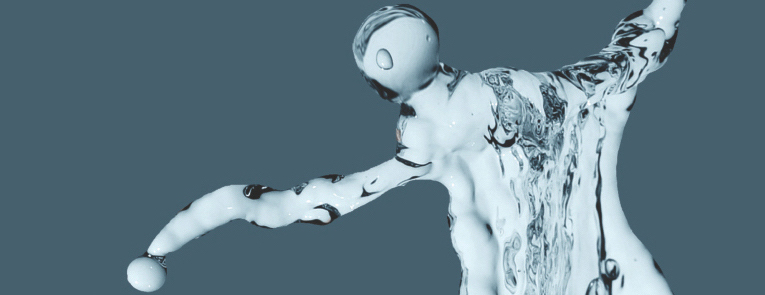
Luci Attala introduces How Water Makes Us Human: Engagements with the Materiality of Water, the first book in the Materialities in Anthropology and Archaeology series.
I am not a great water drinker; I prefer to get into it. As I have grown older it is the quietness that is created by going deep under the water that attracts me. Just like the crisp silence that befalls a town waking up to a heavy fall of snow overnight, going under it cuts out the surrounding sounds otherwise jarringly audible. I have always felt bonded with water, telling people that ‘water is a friend’, until an event in 2014 that made me reconsider my relationship with it.
Whilst in Bali, I was shown a ‘secret’ beach that most tourists were unaware of. It formed a tiny idyllic bay of white sands, palm trees and a small group of fisher people and their colourful wooden houses and sail boats. I spent a wonderful day on that beach with my son. Realising that time was pushing on and that we should leave, we decided to take a last swim before setting off. We swam out together, feeling the sea change temperature and colour as we moved away from the land, exhilarated by the mass of the water below us. At a certain point I decided it was time to return to the shore and shouted for my son to turn back with me. It wasn’t long before I realised that the sea was restricting our passage. We were progressing, but it was difficult. My son, not a strong swimmer, was struggling to keep up. I realised we were in trouble. Suddenly the water had altered from a soft body breathing, its form rising and falling rhythmically, to being choppy, slapping and swirling. My son was being pulled away from me and I could no longer reach him; I started gesticulating and shouting back to the shore in the hope of attracting help as the water shaped itself into a series of rapid, dark, dominating waves that pulled us up high and dropped us as we were sucked back. I cried at my son, ‘I think we’re in trouble’, felt my legs heavy and incapable of moving and I disappeared under the water – until I hit into something. That something was a local fisherman who, like a harpoon, had shot out and dragged me back to the shore. Similarly, my son was pulled from the water. Shocked, we vomited water; it poured out of our ears and noses as if it had explored us internally. I asked a local, ‘What happened?’, wondering why the sea had changed so dramatically and so rapidly. ‘Ah, it does that sometimes,’ he said, ‘you have to be careful with the water.’
The water’s ability to shift from benign to hazardous seemed almost immediate and without warning, the unpredictability and my powerlessness to counter its demands engendered penetrating insecurity and fear, which lived with me for some time after the event. The emotional intensity felt as if it had soaked itself into my flesh, and insisted that I think it through to assimilate it.
Later it was explained that the traffic of heavy tankers sailing through the relatively tight stretch of water between Indonesia and Australia, moving commodities from Asia to Europe, impact on the behaviour of the water nearer the shore. Knowing this offered an explanation, but it felt incomplete because of the emotionally charged memories I held. The greater enlightenment came from feeling the force of the water, which transformed my idea of water into an almost visceral knowledge of what it can do. In addition to its magnitude, its ability to affect and transform brought a field of material collisions into my view.
The water had moved me physically and emotionally. It literally enveloped me, so that there was no space between me and it, and then it flowed into and through my flesh as if encouraging me to feel it fully. I was temporarily one with the ocean and, as a result, I thought-with the water – which demanded that I also think about it. Consequently, the event helped me to grasp the genuine material lack of space between entities and, therefore, comprehend the material connections that are constantly producing life’s actions.
This was an important message; I felt that water had communicated with me. This is not to suggest that water spoke to me, but rather that my relationship with water on that day reshaped the way I was able to understand it, and that it taught me an enormously potent lesson which set me on the road to writing How Water Makes us Human.
Luci Attala is Senior Lecturer in Anthropology at UWTSD, Senior Fellow HEA, Green Gown Award winner (2015) for her work on sustainability, and was recipient of the UN Gold Star Award (2014) for work in Kenya.


